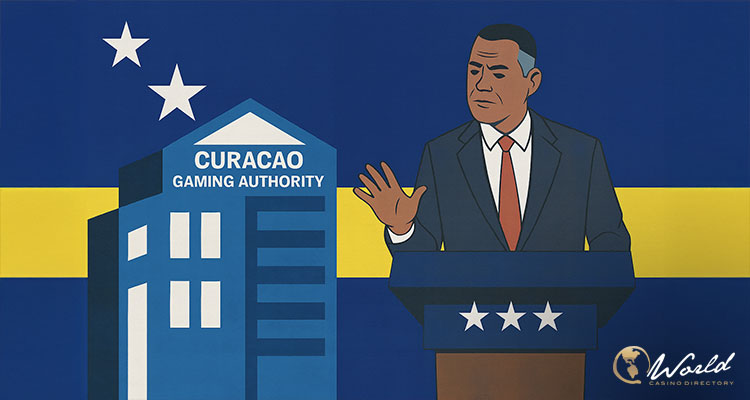Curaçao’s efforts to modernize its gambling regulation have been thrown into uncertainty after the entire Supervisory Board of the Curaçao Gaming Authority (CGA) resigned in mid-September. The sudden departure of commissioners Shelwyn Salesia, Robert Reijnaert, and Ildefons Simon leaves the newly established regulator without a governing board—barely three months after its official launch under the island’s revamped gaming framework.
The resignations have sparked political and administrative upheaval, as Prime Minister Gilmar Pisas appears to have assumed direct control of the regulator—an agency that officially falls under the Ministry of Finance, led by Javier Silvania (MFK). The situation raises fresh questions about the future of Curaçao’s long-promised gambling reforms under the Landsverordening op de Kansspelen (LOK), the new law meant to overhaul one of the Caribbean’s most lucrative industries.
Prime Minister Steps In as Finance Minister Faces Pressure
Shortly after the commissioners stepped down, Prime Minister Pisas held a private meeting with CGA management to discuss “matters related to the gambling sector.” Government adviser Caryl Monte attended the meeting in place of Minister Silvania, whose absence was widely noted by local media.
Observers say this is a strong indication that Pisas has taken over direct responsibility for the gaming regulator—an unusual move, given that the CGA was created to operate under Silvania’s Ministry of Finance. According to reports, all formal communication between the authority and government is now routed through the Prime Minister’s Office.
The change in oversight comes at a difficult moment for Silvania, who is under mounting political pressure within the ruling MFK party following public disputes with senior civil servant Alfonso Trona and allegations of corruption and abuse of power. The opposition party PAR has even called for parliamentary and prosecutorial intervention in separate controversies tied to the Finance Minister.
Regulator Without Oversight
Acc0rding to Curaçao Chronicle, the CGA, which officially replaced the Gaming Control Board (GCB) in July 2025, was established as part of Curaçao’s broader plan to modernize and tighten supervision of its gambling market. Its mandate under the LOK includes phasing out the old master–sub-licence system and requiring all operators to apply directly for new licences under stricter standards for transparency and compliance.
However, the regulator’s administrative foundation now appears shaky. The CGA has yet to appear in the Chamber of Commerce’s commercial register despite presenting itself as a foundation on its official website. It also publicly describes itself as operating “on behalf of the Minister of Finance,” though in practice, its correspondence is reportedly handled by the Prime Minister’s Office.
With no new appointments announced to replace the resigned commissioners, the CGA currently lacks its supervisory layer—an unprecedented void for a body tasked with enforcing integrity and oversight within Curaçao’s gaming sector.
The timing of the resignations could hardly be worse. Curaçao’s regulatory reform process, already marked by delays and criticism, now faces another obstacle. The LOK, adopted in December 2024, was designed to strengthen licensing and anti-money laundering controls while enhancing international credibility for the island’s gaming industry.
Yet, with no functioning supervisory board and leadership disputes between top government officials, the implementation of these reforms is uncertain. Critics argue that the country’s reputation for lax oversight and inconsistent enforcement could worsen if the political tug-of-war continues.
The gambling industry remains one of Curaçao’s most profitable sectors, generating an estimated 40 million Netherlands Antillean guilders (€20–30 million) annually for public finances. It has long been described as “the government’s cash cow,” and its regulation has become a political flashpoint.
Analysts point out that while the CGA reiterated its commitment as recently as July to combating illegal gaming, the regulator has now “descended into a state of chaos with no oversight.” Whether Prime Minister Pisas’s direct intervention will bring stability—or further entrench political influence in an already fragile system—remains unclear.


